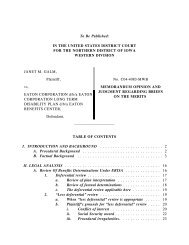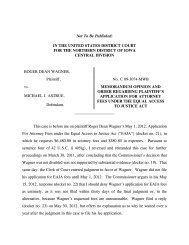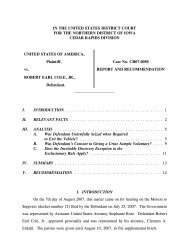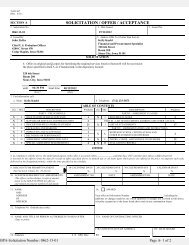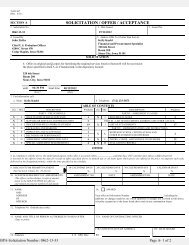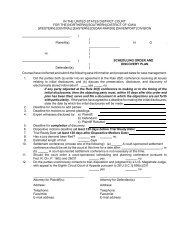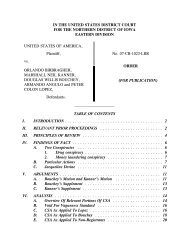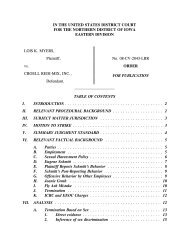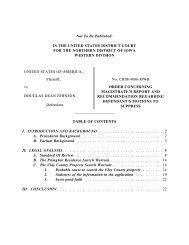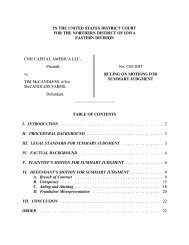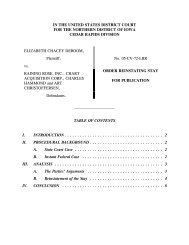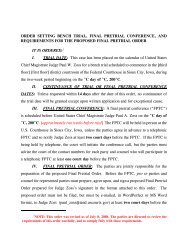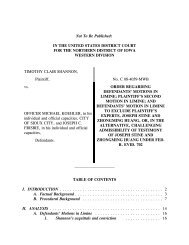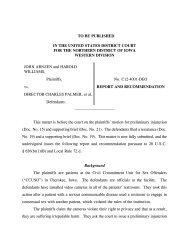To Be Published - Northern District of Iowa
To Be Published - Northern District of Iowa
To Be Published - Northern District of Iowa
Create successful ePaper yourself
Turn your PDF publications into a flip-book with our unique Google optimized e-Paper software.
oker was the third-party beneficiary <strong>of</strong> a contract between a customer and a clearing<br />
broker;<br />
A third party may sue as a beneficiary to a contract if<br />
the parties intended their performance to benefit the third<br />
party. Port Chester Electrical Construction Corp. v. Atlas, 40<br />
N.Y.2d 652, 655, 357 N.E.2d 983, 985-86, 389 N.Y.S.2d<br />
327, 330 (1976). The Restatement Second <strong>of</strong> Contracts takes<br />
the position that, “unless otherwise agreed,” if “recognition <strong>of</strong><br />
a right to performance in the beneficiary is appropriate to<br />
effectuate the intention <strong>of</strong> the parties,” the beneficiary will be<br />
protected when “the circumstances indicate that the promissee<br />
intends to give the beneficiary the benefit <strong>of</strong> the promised<br />
performance.” Restatement (Second) <strong>of</strong> Contracts § 302. The<br />
customer agreement does not explicitly grant or deny Mabon<br />
a right to enforce any <strong>of</strong> its terms. The manner in which<br />
Cauble’s trading account was handled, however, demonstrates<br />
that performance <strong>of</strong> Cauble’s contractual obligations under the<br />
Goodman customer agreement was to be monitored and<br />
controlled by Mabon. At the time <strong>of</strong> the agreement’s<br />
execution, Cauble and Goodman were both aware <strong>of</strong> Mabon’s<br />
control <strong>of</strong> the functioning <strong>of</strong> Cauble’s account. Leon Pollack’s<br />
letter to Cauble on April 20, 1982 delineated the basic terms<br />
<strong>of</strong> the relationship between Cauble and Mabon. Mabon was to<br />
have supervisory powers over the Cauble account-including<br />
authority to collect margins for Goodman-and to have direct,<br />
daily contact with Cauble, while Goodman was to do no more<br />
than clear trades. Where performance is to be rendered<br />
directly to a third party under the terms <strong>of</strong> an agreement, that<br />
party must be considered an intended beneficiary. See<br />
Goodman-Marks Associates, Inc. v. Westbury Post Associates,<br />
70 A.D.2d 145, 148, 420 N.Y.S.2d 26, 28-29 (2d Dep’t 1979)<br />
(per curiam).<br />
If Mabon was an intended beneficiary <strong>of</strong> those terms <strong>of</strong><br />
the customer agreement governing the management <strong>of</strong> property<br />
in the customer account and margin calls, it should also be<br />
regarded an intended beneficiary <strong>of</strong> the liquidation provision.<br />
7



